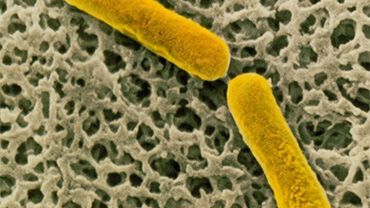Epidemiological update: Botulism in Germany, 8 May 2017
On 20 December 2016, ECDC and EFSA published a joint rapid outbreak assessment describing a cluster of six laboratory-confirmed German and Spanish cases of foodborne botulism caused by botulinum neurotoxin type E which occurred during November and December 2016. All of the six patients had consumed dried and salted roach, a fresh and brackish water fish (Rutilus rutilus).
On 4 May 2017, Germany reported a new laboratory-confirmed case of botulism in a 53-year-old man living in north-west Germany. The patient, who had clinical symptoms compatible with foodborne botulism, remains in a critical condition. The botulinum neurotoxin type E was demonstrated in patient sera and Clostridium botulinum type E was detected by PCR in left-overs of the fish consumed by the patient. Preliminary information indicates the source to be dried and salted roach (Rutilus rutilus), locally purchased on 29 April 2017. A second suspected case of foodborne botulism in southern Germany is currently under investigation.
As reported in the previous ECDC and EFSA joint assessment, those at greatest risk are population groups who traditionally consume dried and salted roach (‘vobla’), mainly distributed in stores specialising in eastern European food. The risk for other population groups is very low in the EU/EEA. The German authorities are investigating whether the current event and the one described in December 2016 are related.
Read more
Related content
Botulism - Annual Epidemiological Report, 2016 [2014 data]
Annual Epidemiological Report for Botulism, 2014. ECDC’s annual surveillance reports provide a wealth of epidemiological data to support decision-making at the national level. They are mainly intended for public health professionals and policymakers involved in disease prevention and control programmes.
Factsheet for health professionals about botulism
General disease information for public health experts on botulism which is a serious paralytic illness caused by a nerve toxin produced by the bacterium Clostridium botulinum.





